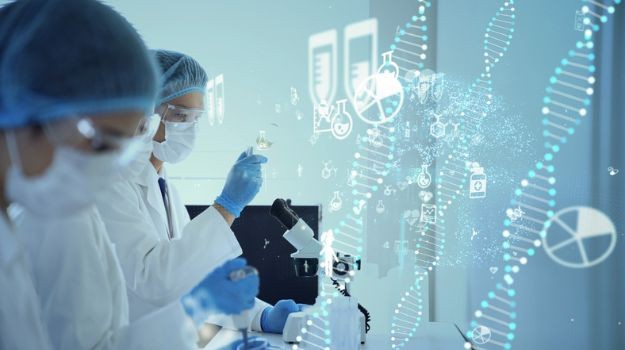UCSB Secures NSF Grant to Unlock Biotech Potential of Rare Microbes
UCSB secures $22M NSF grant for ExFAB, pioneering research on extreme microbes for biotech innovations.
Breaking News
Aug 29, 2024
Mrudula Kulkarni

This week, UC Santa Barbara (UCSB) secured a six-year, $22
million grant from the National Science Foundation (NSF) as part of its
biofoundries initiative. The funding will support the creation of the
BioFoundry for Extreme and Exceptional Fungi, Archaea, and Bacteria (ExFAB), a
collaborative effort with UC Riverside (UCR) and Cal Poly Pomona (CPP). ExFAB
will be the first biofoundry in the United States dedicated to studying and
harnessing the potential of largely unexplored extreme microbes. UCSB's project
is one of only five selected for NSF’s BioFoundry program this cycle, with a
total of $75 million awarded to the chosen institutions.
UCSB Chancellor Henry T. Yang said, “Our campus is thrilled
to receive this visionary funding from the National Science Foundation, which
reflects the research strength and innovation of our colleagues who are working
across disciplines and institutions to advance biotechnology and
bioengineering.”
“We are extremely excited because this funding enables us to
build infrastructure that nobody, especially in academia, has had access to
before. The facility allows us to unlock the promise of a new generation of
synthetic biology -; one that focuses on developing new biotechnology from
extreme and unusual microorganisms found in nature,” said ExFAB Director
Michelle O'Malley, a professor of chemical engineering and bioengineering at
UCSB.
ExFAB aims to develop methods for studying some of nature's
most unconventional microorganisms, often called "extreme" because
they defy typical laboratory growth patterns. These microbes may thrive under
unique conditions, such as requiring unusual nutrients, surviving in extreme
temperatures, or growing in the absence of oxygen. These characteristics make
them challenging to investigate using standard lab equipment.
“These extreme microorganisms defy our current understanding
of biology, yet they often host traits that we want to harness for
biotechnology – such as enzymes that chew up waste, or pathways that make
valuable products and new medicines. Now, with the ExFAB, users have a place to
bring their 'weird' microbes to study them and prototype new biotechnology from
what they learn,” O'Malley, a renowned authority on engineering anaerobes to
convert waste into sustainable fuels, chemicals, and bio-based materials,
remarked.
Despite numerous breakthroughs in synthetic biology, which
involves reengineering nature’s components—like DNA, proteins, and even whole
organisms—for new purposes, the field has predominantly concentrated on
microorganisms that are easy to grow and domesticate in standard lab
environments. However, these domesticated microbes often lack the very traits
that are most valuable for biotechnological applications.
In nature, the most successful biological products are
typically crafted by unusual microbes with unique and challenging growth
requirements. To harness the potential of these extreme microorganisms, ExFAB
will leverage synthetic biology by developing groundbreaking instruments,
innovative robotic systems, and machine learning-driven technologies.
ExFAB's research will revolve around three key themes:
bioremediation, biosynthesis, and the rules of life. The goal is to engineer
microbes capable of addressing environmental issues, such as cleaning up PFAS
(per- and polyfluoroalkyl substances) and other persistent chemicals,
sustainably producing silica-based materials, recycling carbon resources, and
enhancing productive carbon and nitrogen cycles in both soil and marine
ecosystems.
